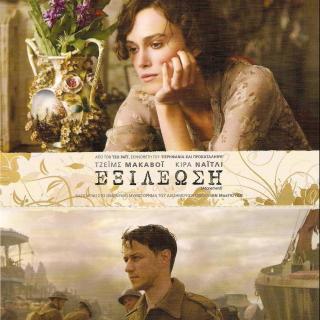
介绍:
He thought of himself in 1962, at fifty, when he would be old, but not quite old enough to be useless, and of the weathered, knowing doctor he would be by then, with the secret stories, the tragedies and successes stacked behind him. Also stacked would be books by the thousand, for there would be a study, vast and gloomy, richly crammed with the trophies of a lifetime’s travel and thought—rare rain forest herbs, poisoned arrows, failed electrical inventions, soapstone figurines, shrunken skulls, aboriginal art. On the shelves, medical reference and meditations, certainly, but also the books that now filled the cubbyhole in the bungalow attic—the eighteenth-century poetry that had almost persuaded him he should be a landscape gardener, his third-edition Jane Austen, his Eliot and Lawrence and Wilfred Owen, the complete set of Conrad, the priceless 1783 edition of Crabbe’s The Village, his Housman, the autographed copy of Auden’s The Dance of Death. For this was the point, surely: he would be a better doctor for having read literature. What deep readings his modified sensibility might make of human suffering, of the self-destructive folly or sheer bad luck that drive men toward ill health! Birth, death, and frailty in between. Rise and fall—this was the doctor’s business, and it was literature’s too. He was thinking of the nineteenth-century novel. Broad tolerance and the long view, an inconspicuously warm heart and cool judgment; his kind of doctor would be alive to the monstrous patterns of fate, and to the vain and comic denial of the inevitable; he would press the enfeebled pulse, hear the expiring breath, feel the fevered hand begin to cool and reflect, in the manner that only literature and religion teach, on the puniness and nobility of mankind . . .
His footsteps quickened in the still summer evening to the rhythm of his exultant thoughts. Ahead of him, about a hundred yards away, was the bridge, and on it, he thought, picked out against the darkness of the road, was a white shape which seemed at first to be part of the pale stone of the parapet. Staring at it dissolved its outlines, but within a few paces it had taken on a vaguely human form. At this distance he was not able to tell whether it faced away or toward him. It was motionless and he assumed he was being watched. He tried for a second or two to entertain himself with the idea of a ghost, but he had no belief in the supernatural, not even in the supremely undemanding being that presided over the Norman church in the village. It was a child, he saw now, and therefore it must be Briony, in the white dress he had seen her wearing earlier in the day. He could see her clearly now and he raised his hand and called out to her, and said, “It’s me, Robbie,” but still she did not move.
As he approached it occurred to him that it might be preferable for his letter to precede him into the house. Otherwise he might have to pass it to Cecilia in company, watched perhaps by her mother who had been rather cool toward him since he came down. Or he might be unable to give the letter to Cecilia at all because she would be keeping her distance. If Briony gave it to her, she would have time to read it and reflect in private. The few extra minutes might soften her.
“I was wondering if you’d do me a favor,” he said as he came up to her.
She nodded and waited.
“Will you run ahead and give this note to Cee?”
He put the envelope into her hand as he spoke, and she took it without a word.
“I’ll be there in a few minutes,” he started to say, but she had already turned and was running across the bridge. He leaned back against the parapet and took out a cigarette as he watched her bobbing and receding form fade into the dusk. It was an awkward age in a girl, he thought contentedly. Twelve, or was it thirteen? He lost sight of her for a second or two, then saw her as she crossed the island, highlighted against the darker mass of trees. Then he lost her again, and it was only when she reappeared, on the far side of the second bridge, and was leaving the drive to take a shortcut across the grass that he stood suddenly, seized by horror and absolute certainty. An involuntary, wordless shout left him as he took a few hurried steps along the drive, faltered, ran on, then stopped again, knowing that pursuit was pointless. He could no longer see her as he cupped his hands around his mouth and bellowed Briony’s name. That was pointless too. He stood there, straining his eyes to see her—as if that would help—and straining his memory too, desperate to believe that he was mistaken. But there was no mistake. The handwritten letter he had rested on the open copy of Gray’s Anatomy, Splanchnology section, page 1546, the vagina. The typed page, left by him near the typewriter, was the one he had taken and folded into the envelope. No need for Freudian smart-aleckry—the explanation was simple and mechanical—the innocuous letter was lying across figure 1236, with its bold spread and rakish crown of pubic hair, while his obscene draft was on the table, within easy reach. He bellowed Briony’s name again, though he knew she must be by the front entrance by now. Sure enough, within seconds, a distant rhombus of ocher light containing her outline widened, paused, then narrowed to nothing as she entered the house and the door was closed behind her.

